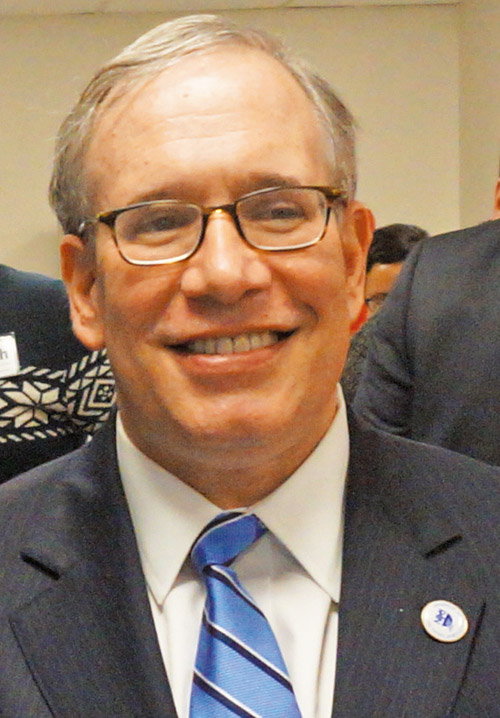
New York City Comptroller Scott Stringer has spent his life living and being involved in his hometown’s politics and issues.
He believes that connection to the city and his involvement in issues such as police reform, tenant and environmental advocacy and homelessness, as well as investigations and initiatives that have saved the city many millions of dollars have made him especially suited to become the Democratic candidate in the June 22 mayoral primary.
Stringer formerly served as Manhattan borough president, as a six-term state assemblyman representing Manhattan’s Upper West Side and as a legislative aide to Assemblyman and now Congressman Jerrold Nadler, whose assembly seat Stringer took over. He has served as comptroller since 2014.
Stringer, who didn’t respond to requests from The Jewish Link for an interview, grew up in Manhattan’s Washington Heights, the child of a single mother who was a city public school teacher. He attended city public schools and graduated from John Jay College of Criminal Justice.
Stringer said his wealth of experience in dealing with the many issues and problems facing the city as it comes out of the pandemic make him “ready on day one,” to tackle them, according to his website.
As COVID-19 took its toll both economically and physically on New York, Stringer believes officials “dropped the ball” in responding.
For his part during the pandemic, he launched FairShotNYC to increase accessibility to vaccinations, particularly among communities of color, and investigated the city’s Health and Hospitals—identifying several deficiencies in preparedness and execution at all levels. Stringer also made recommendations for future public health crises, analyzed the needs and proposed ways to keep frontline workers safe and fought for additional funding for “safety-net” hospitals, including seeking federal support to provide high-quality care to immigrants and vulnerable New Yorkers.
Among his other proposed responses to get the city back on its feet are developing health programs to assist “long-haulers” suffering COVID aftereffects, increasing emergency stockpiles, strengthening disease tracking systems and increasing trust of healthcare workers among marginalized communities in advance of the next pandemic.
Stringer would also take steps to build a “world-class” public health system by strengthening the city’s public health leadership and infrastructure.
As New York’s chief financial officer, Stringer has overseen the growth of its pension funds from $147 to $240 billion and audited every city agency to halt inefficiency and waste, according to his website. He developed the Save Main Street initiative to help small businesses recover and bring back business sectors. He would create a $1 billion NYC Recovery Now Fund awarding $100,000 stimulus grants to small businesses and nonprofits for back rent, payroll, hiring of laid-off employees and pay for any COVID-related renovation costs.
Stringer has a “detailed” plan to create jobs, support minority- and women-owned businesses and train workers for jobs of the future, including a major public works program, RebuildNYC, to reconstruct and “green” New York’s infrastructure. He believes such environmentally friendly programs can create 100,000 “well-paying” green jobs.
Among other initiatives Stringer would enact are investing in parks and cultural institutions to help bring back tourism; keeping communities safe from serious crime by strengthening detective work; staunching the flow of guns into the city and instituting violence-interruption policies.
Stringer’s website said he has spoken out “loudly and consistently” about police misconduct and will continue to work to end racism in the criminal legal system and “creatively stem recent upticks in violence through a multi-agency vision for public safety,” including expanding alternative responses and services for mental health, homelessness and substance use, increasing effectiveness in stopping serious crime and improving the accountability and oversight of the NYPD.
By Debra Rubin













